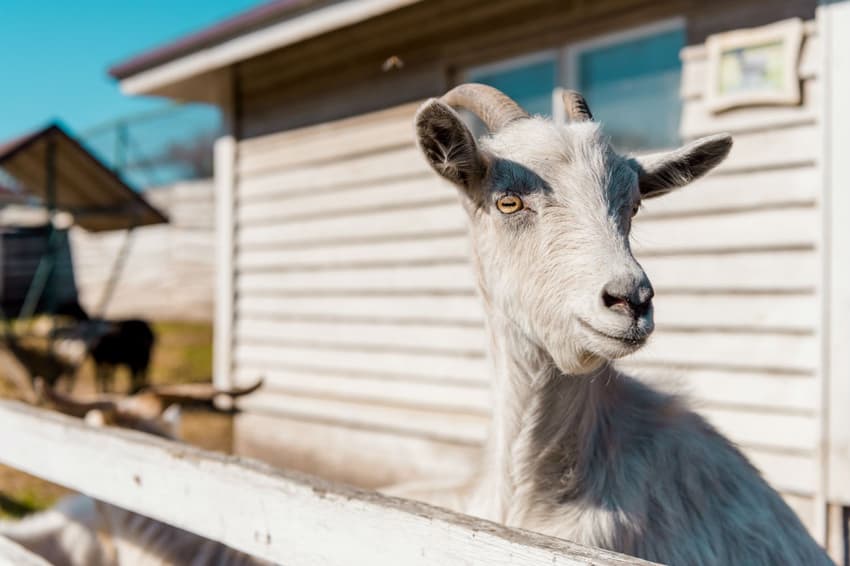German word of the day: Die Goaßgschau

Why do we sometimes find ourselves staring into space for no reason? And why don’t we have a word for this in English? Well the Bavarians do: die Goaßgschau.
What does it mean?
Die Goaßgschau is not a word that you’d hear everywhere across German speaking countries; rather it’s a dialect word that’s found exclusively in Bavaria in southeast Germany. It refers to “an absent-minded gaze”.
Perhaps it’s a term you’ll hear if you’re headed to Munich for Oktoberfest this year.
READ MORE: 15 Bavarian words you need to survive down south
What are its origins?
A Goaßgschau is something we’ve all experienced at some point in our lives. We’ve done it ourselves and we’ve watched other people do it, though we probably didn’t consider that someone out there had named the concept.
An alternative phrase in English that communicates the idea of not quite being present is "to be away with the fairies", though this British term doesn't quite capture the notion of a staring blankly at nothing.
In English Goaßgschau translates to “the stare of a goat”, or a person’s absent-minded gaze which resembles that of a goat’s blank stare.
Goaß is the Bavarian dialect word for goat (as opposed to the standard German word die Ziege) and Gschau is the Bavarian dialect word for a person’s facial expression (which is quite far off from the standard German word Der Gesichtsausdruck).
Goaßgschau: Why do we do it?
As presented in a report by Galileo, the University of Wisconsin conducted research into why we all do a Goaßgeshau.
We usually stare into space whilst we’re working, and according to their findings, a Goaßgshau is an automatic human mechanism which helps us process new information. It also helps us refocus our concentration.
Examples of Goaßgshau
"Hallo!! Hörst du mich?" ...“Sorry, Goaßgschau!”
Can you hear me? ... Sorry, I was away with the fairies.
"Das sogenannte Goaßgschau kennt jeder von uns."
Everyone know what the so called "stare of a goat" is all about.
"Wenn nun jemand während einer Vorlesung abwesend ist, Dann ist das Goaßgschau in seiner schönsten Form zu beobachten."
When someone's not quite present during a lecture, then the Goaßgschau can be observed in its purest form.
Comments
See Also
What does it mean?
Die Goaßgschau is not a word that you’d hear everywhere across German speaking countries; rather it’s a dialect word that’s found exclusively in Bavaria in southeast Germany. It refers to “an absent-minded gaze”.
Perhaps it’s a term you’ll hear if you’re headed to Munich for Oktoberfest this year.
READ MORE: 15 Bavarian words you need to survive down south
What are its origins?
A Goaßgschau is something we’ve all experienced at some point in our lives. We’ve done it ourselves and we’ve watched other people do it, though we probably didn’t consider that someone out there had named the concept.
An alternative phrase in English that communicates the idea of not quite being present is "to be away with the fairies", though this British term doesn't quite capture the notion of a staring blankly at nothing.
In English Goaßgschau translates to “the stare of a goat”, or a person’s absent-minded gaze which resembles that of a goat’s blank stare.
Goaß is the Bavarian dialect word for goat (as opposed to the standard German word die Ziege) and Gschau is the Bavarian dialect word for a person’s facial expression (which is quite far off from the standard German word Der Gesichtsausdruck).
Goaßgschau: Why do we do it?
As presented in a report by Galileo, the University of Wisconsin conducted research into why we all do a Goaßgeshau.
We usually stare into space whilst we’re working, and according to their findings, a Goaßgshau is an automatic human mechanism which helps us process new information. It also helps us refocus our concentration.
Examples of Goaßgshau
Join the conversation in our comments section below. Share your own views and experience and if you have a question or suggestion for our journalists then email us at [email protected].
Please keep comments civil, constructive and on topic – and make sure to read our terms of use before getting involved.
Please log in here to leave a comment.